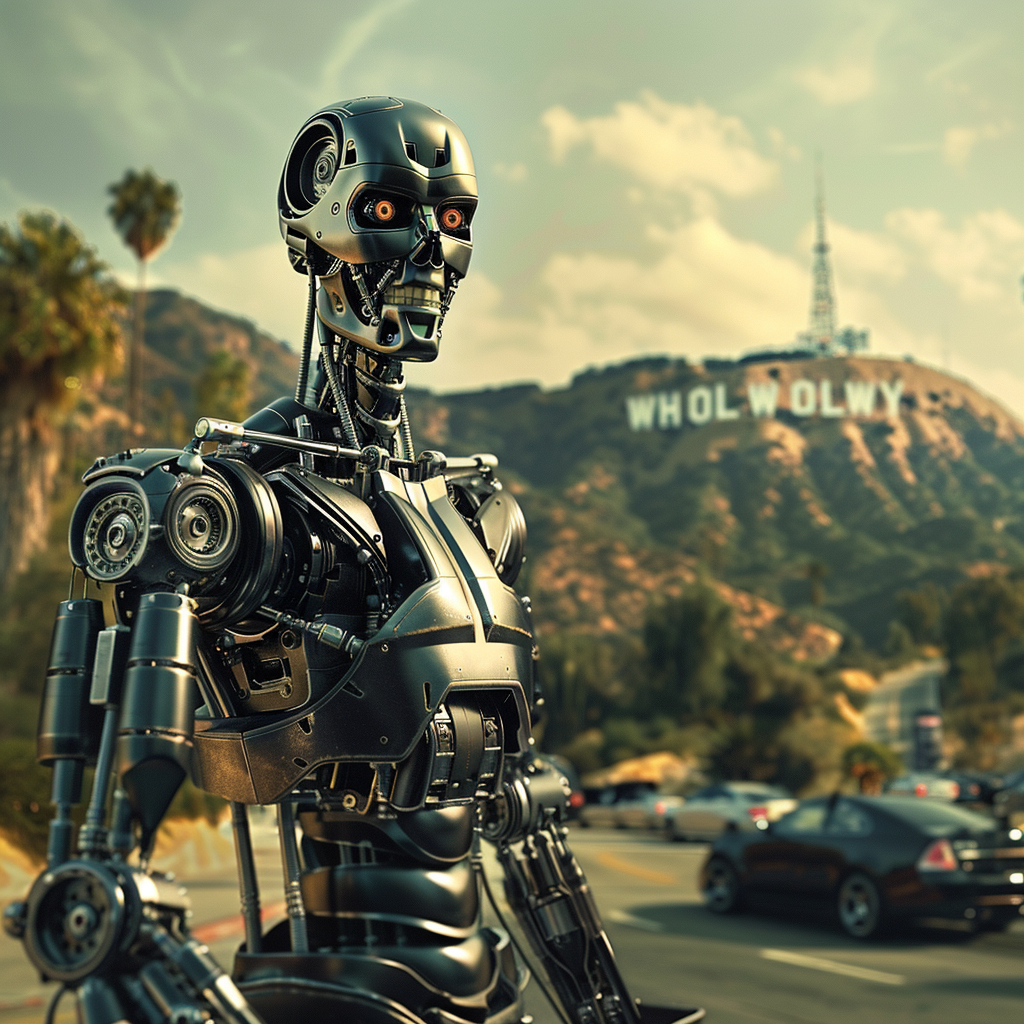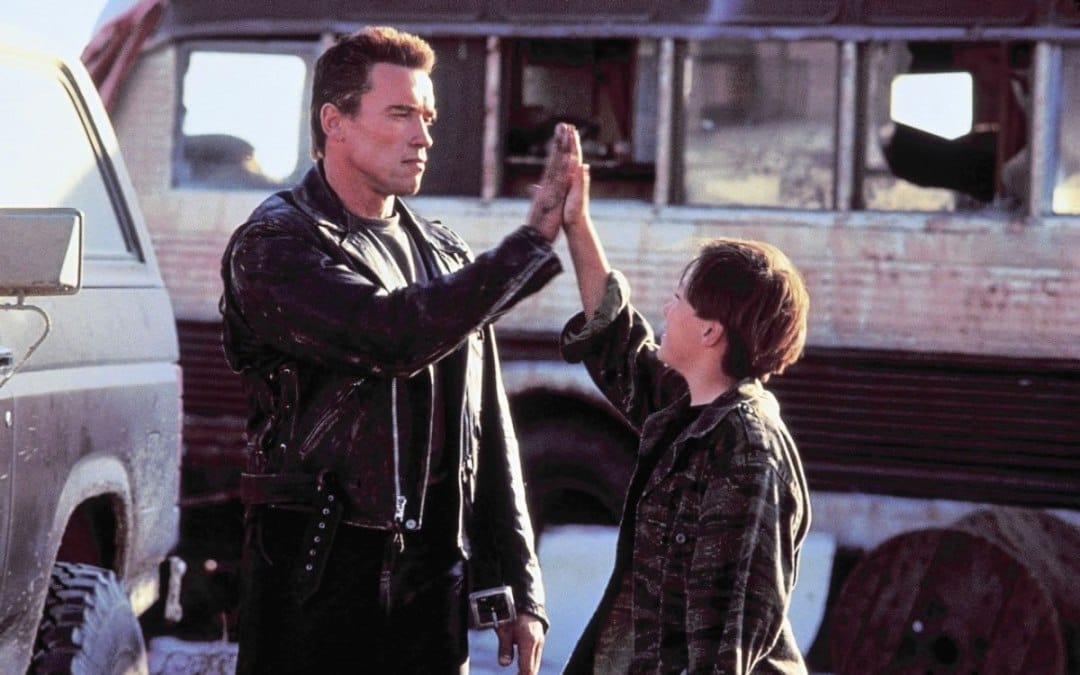Hollywood vs. AI: The Movie

Few things, it seems, gets Hollywood to rally closer together than AI. Specifically, to rally together against AI. Here's Todd Spangler for Variety:
More than 400 Hollywood creative leaders signed an open letter to the Trump White House’s Office of Science and Technology Policy, urging the administration to not roll back copyright protections at the behest of AI companies.
The filmmakers, writers, actors, musicians and others — which included Ben Stiller, Mark Ruffalo, Cynthia Erivo, Cate Blanchett, Cord Jefferson, Paul McCartney, Ron Howard and Taika Waititi — were submitting comments for the Trump administration’s U.S. AI Action Plan. The letter specifically was penned in response to recent submissions to the Office of Science and Technology Policy from OpenAI and Google, which asserted that U.S. copyright law allows (or should allow) allow AI companies to train their system on copyrighted works without obtaining permission from (or compensating) rights holders.
Why single out those eight names? Unclear. Editorial choice, one assumes. But actually, a couple paragraphs down we get more:
The letter’s signatories include: Ben Stiller, Mark Ruffalo, Guillermo del Toro, Natasha Lyonne, Paul McCartney, Cynthia Erivo, Cate Blanchett, Phoebe Waller-Bridge, Cord Jefferson, Bette Midler, Cate Blanchett, Ava Duvernay, Paul Simon, Aubrey Plaza, Ángel Manuel Soto, Ron Howard, Taika Waititi, Ayo Edebiri, Joseph Gordon-Levitt, Lily Gladstone, Sam Mendes, Brit Marling, Janelle Monáe, Bryn Mooser, Rian Johnson, Paul Giamatti, Maggie Gylenhall, Alfonso Cuaron, Olivia Wilde, Judd Apatow, Kim Gordon, Chris Rock and Michaela Coel.
It's an impressive list of actors and musicians. But again, why name these 33 versus the 300+ others they could have? (Actually, strike that, it's 32 – Cate Blanchett is listed twice! And three times if you include the opening! Cate Blanchett must be really against AI.) Why are they in the order they're in? Fame? Maybe. Though I assume Paul McCartney is better known than Mark Ruffalo – no offense, Mark! Is it just a sort of of-the-moment-ness? Something else?
I'm assuming it's Variety picking these names, but I'm also guessing whomever is doing the PR on the talent side is also pushing their clients' names here. I guess it doesn't really matter. But I'm always amused when a group of celebrities are the focal point for these open letters. I mean, sure, it's a way to get headlines. But aren't there members of the creative community likely better suited to speak to the issues – and, to be clear, there are real issues – being debated here? With AI in particular, shouldn't writers and editors be at the forefront?1 It just feels like the full-on disruption of acting is still quite a ways out – if it ever comes.2 My point is that it sets this type of action up to be more of a publicity stunt, which it shouldn't be.
Worse, I suspect the fact that a bunch of these Hollywood celebrities are signing this letter might actually backfire as this is being sent to the White House. A place currently run by a person known to be vengeful against communities that not only voted against him, but actively campaigned against him.3
Regardless, this is setting up for an interesting showdown between these two sides because of the clever "America first" framing which obviously will appeal to President Trump. So then it's a debate if it's more important that America be viewed as the worldwide leader in AI or the worldwide leader in entertainment.
I mean, the obvious answer is both. But again, these two sides are suggesting that we can't have both.
That in order for the US to be at the vanguard of AI, such systems need to be able to train on the most amount of data possible – and that includes anything and everything in the realms of entertainment. And OpenAI, Google, and others training such systems would like to continue using the concept of "fair use" of such content to train their models. To be clear, this isn't talking about outputs, this is about inputs.
The entertainment industry – well, at least these signatories, but most likely they do speak for most of the broader industry – meanwhile, believes that Hollywood was essentially built on the back of strong copyright protection. And that, in turn, has created an industry which is the envy of the world when it comes to influence. It has given America a sort of "soft power" that is unmatched and AI could destroy that, in their view.
The agendas just one level below these letters on both sides should be pretty obvious.
The AI industry undoubtedly thinks it's completely untenable to try to strike deals with every single rights holder for every single bit of content. They've started doing this with news publishers, but it's piecemeal, laborious, and expensive. And the Hollywood apparatus with agents and publicists and the like are all going to want their cuts. Oh yes, and the various unions will want their say too. There is a risk that AI training gets bogged down in years of negotiations. Meanwhile, in China, you're really just negotiating with one person. And he pretty clearly wants to win in AI... (And his country is doing quite well in entertainment these days too.)
Meanwhile, Hollywood wants to get paid. They'll dispute this, but it's pretty evident in that letter. They seem fine with the AI companies training on their IP as long as it's paid for. They oddly cite the market caps of Google and OpenAI (well, their last stated valuation – which is heading upwards as we speak). And they mention this point twice. It's like they think they're writing to Lina Khan. Trump will probably think those are numbers in favor of AI's arguments (though others in his administration may disagree).
So how do you reconcile these two sides? Ultimately money, of course. But I do fear that will take too long for the reasons stated above if it's done on an ad-hoc basis. We need some sort of scalable system like I wrote about the other day with regard to publishing. But the written word is also far more straightforward – at least when it comes to outputs and citations (and it's not that straightforward!).
Is there an easy way to know if, say, a movie from the 1970s was used to train an output of some AI model? Was that in creating some dreamed up dialogue? An image? The movement of a leg in a generated video clip? It's pretty clear that the AI systems themselves don't know all the inputs that lead to certain outputs! Everything is just thrown into the stew and what comes out can delight us.
So clearly you need to focus on the inputs there – what is being ingested into such systems. That can be known, but how do you value it appropriately if you can't do so based on outputs? And what if a lot of the value was already captured from these inputs thanks to the assumption of "fair use" to begin with here. There will be lawsuits. There already are as every single article The New York Times writes about AI informs us. There will be more. A lot more.
In the meantime, do the courts intervene to rule on the fair use element here with regard to AI? And if that goes all the way to the Supreme Court, which way do they lean? The assumption would be in favor of the corporations, but I'm not sure anyone knows right now. This is complicated stuff!
And that's in part because no one yet knows the answer to the ultimate output question here. That is, is this technology truly going to "disrupt" Hollywood? On some level, of course. On many levels, even. But will that ultimately be detrimental to the business – or will it actually help it in ways many can't yet foresee?
Hollywood is clearly making the case that this is existential. That if AI gets its tentacles into their IP, the show is over. It's not going to be that black and white, but how many shades of gray are we dealing with here? And how much pain and punishment until we know the answers? Also, what if it's not torturous at all?
At the same time, AI is also clearly making the case that this is existential! If models can't be trained on this type of content, China will win. But will they? Does this end up mattering if the industry pivots towards other flavors of AI? Does AI, uh, find a way without Hollywood IP?
Anyway, this should be a real discussion and debate, not a set of press releases.



1 It probably doesn't help that someone like James Cameron, long known for his work with technology in film, may be on the other side here...
2 To be fair, several of these names are have many roles -- such as Stiller with his hit show Severence these days. Luckily he doesn't have to call out Apple here -- which itself is probably a bigger problem for Apple!
3 At the same time, he's known to love the notion of celebrity, so maybe he'll view this as some form of bending the knee.



